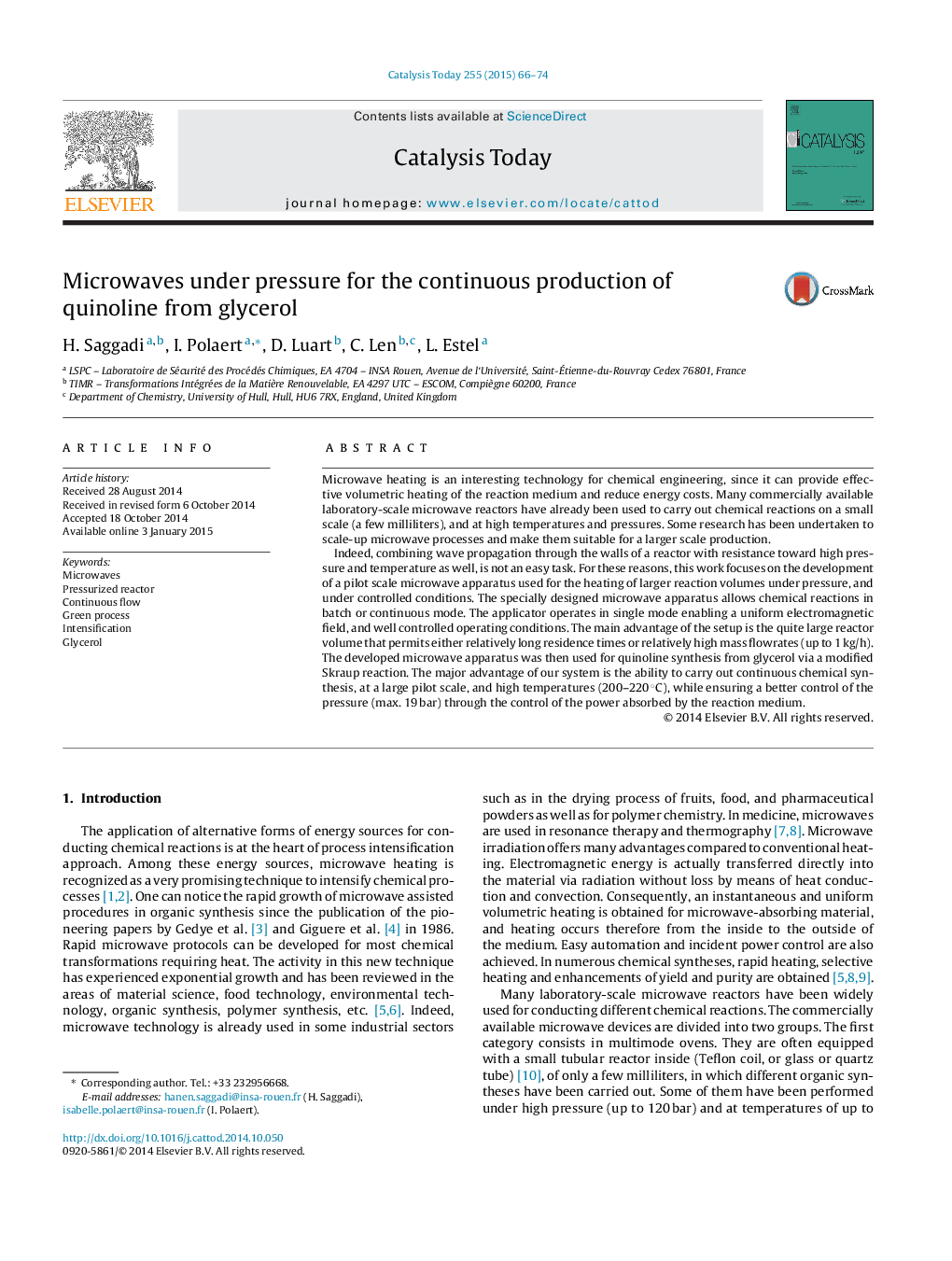| کد مقاله | کد نشریه | سال انتشار | مقاله انگلیسی | نسخه تمام متن |
|---|---|---|---|---|
| 53769 | 46983 | 2015 | 9 صفحه PDF | دانلود رایگان |
• A pilot scale microwave pressurized reactor for green chemistry was designed.
• It allows chemical reactions in batch and continuous mode (production of 1 kg/h).
• It works under high pressure (max. 19 bar) and high temperature (max. 220 °C).
• Quinoline synthesis using a greener Skraup reaction was carried out (yields 42%).
• Reaction time and energy consumption are reduced compared to classical heating.
Microwave heating is an interesting technology for chemical engineering, since it can provide effective volumetric heating of the reaction medium and reduce energy costs. Many commercially available laboratory-scale microwave reactors have already been used to carry out chemical reactions on a small scale (a few milliliters), and at high temperatures and pressures. Some research has been undertaken to scale-up microwave processes and make them suitable for a larger scale production.Indeed, combining wave propagation through the walls of a reactor with resistance toward high pressure and temperature as well, is not an easy task. For these reasons, this work focuses on the development of a pilot scale microwave apparatus used for the heating of larger reaction volumes under pressure, and under controlled conditions. The specially designed microwave apparatus allows chemical reactions in batch or continuous mode. The applicator operates in single mode enabling a uniform electromagnetic field, and well controlled operating conditions. The main advantage of the setup is the quite large reactor volume that permits either relatively long residence times or relatively high mass flowrates (up to 1 kg/h). The developed microwave apparatus was then used for quinoline synthesis from glycerol via a modified Skraup reaction. The major advantage of our system is the ability to carry out continuous chemical synthesis, at a large pilot scale, and high temperatures (200–220 °C), while ensuring a better control of the pressure (max. 19 bar) through the control of the power absorbed by the reaction medium.
Figure optionsDownload high-quality image (165 K)Download as PowerPoint slide
Journal: Catalysis Today - Volume 255, 15 October 2015, Pages 66–74
